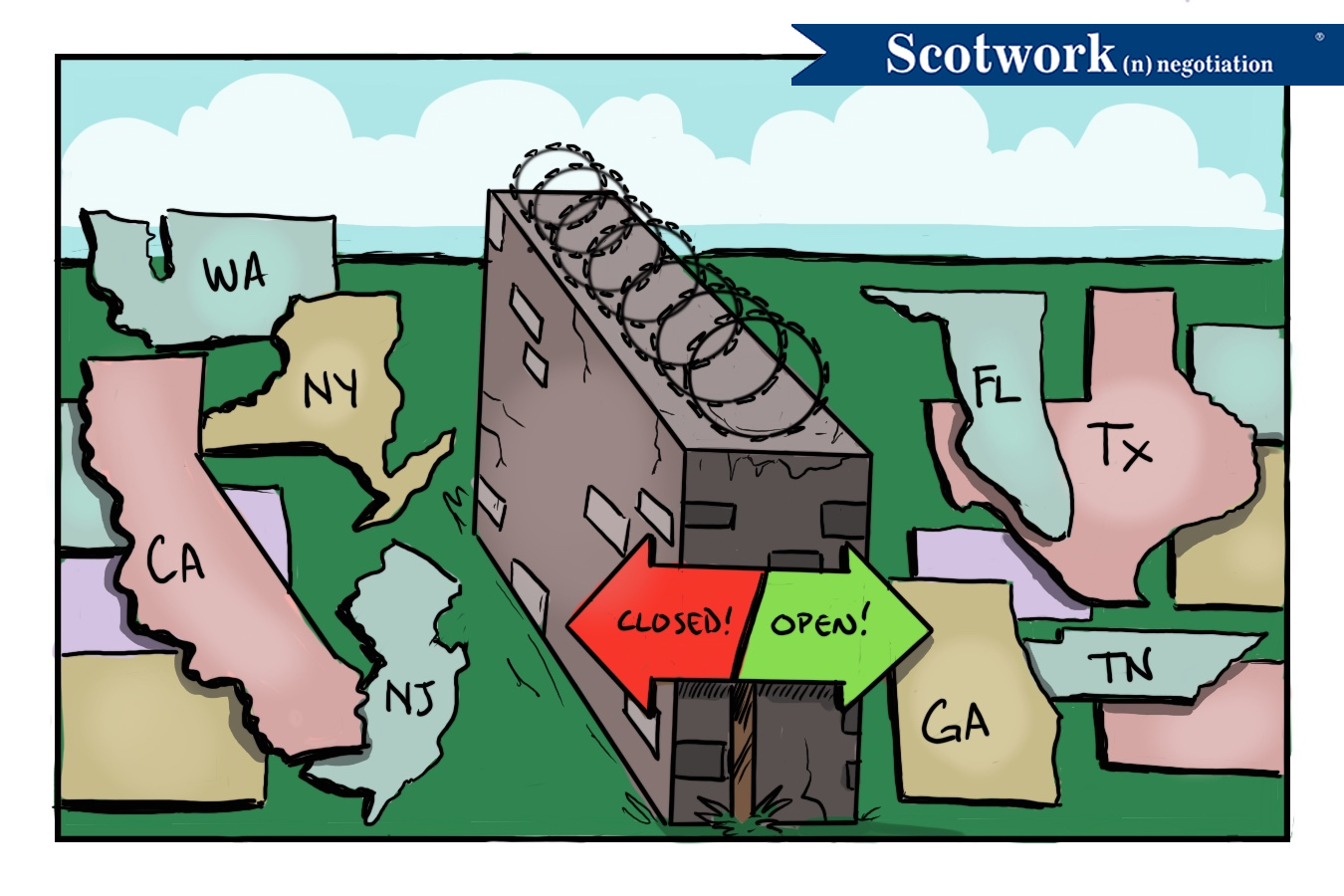The great debate is on: To open or not to open? More than 97% of our nation’s population is currently under stay-at-home or shelter-in-place orders. However, governments and businesses are wrestling with balancing public safety, mental health, and economic viability. The hard part is, there’s literally no right answer. No one knows what that balance should look like, yet there are a lot of strong opinions on the topic — leading to some very emotional arguments.
Those arguments are playing out in the press, on social media, in virtual boardrooms, and around secluded dinner tables. Many people have become self-proclaimed experts on the subject of COVID-19. I even saw a forensic psychiatrist pontificating about his expertise in epidemiology, going so far as to say that there’s no virus. No matter what you believe, the reality is that there’s no uniform position on the subject, and it’s creating uncertainty and disquietude that’s leaving us all in a state of flux.
From a business standpoint, many of our fates are dependent upon when states will reopen. While governments debate the issue, businesses must find a path forward . . . down a very murky road. Some businesses that have been at the epicenter of this pandemic (teleconferencing, pharma, etc.) will have to start planning a landing spot where they can sustain in the new normal, once pandemic demand starts to recede. Other businesses that have been stuck along the periphery, hoping to survive the downturn, are trying to plan a future in which they can remain viable. Both types of businesses are making a bet on a future that no one is certain about. So what do you do?
Pre-Plan Contingencies
About the only thing we can be absolute about is that we absolutely can’t predict the future. Therefore, as we all plan for the future, those plans should be conditional. For instance, let’s assume that you’re buying materials from a supplier that has yet to reopen, but they’ve set a tentative date for late summer. Your agreement should include language for contingencies. While it might be tempting to make a contract absolute and apply penalties if a vendor can’t deliver, that may only lead to conflict and more unrest at a later date. Instead, build in contingencies now to avoid future conflicts.
Be More Flexible
The more rigid we are, the fewer options will be available to us. Skilled negotiators are fairly flexible by nature, but in this environment being flexible is almost a necessity in terms of getting most deals done. And by flexible, I mean being more adaptable to other people’s ideas! In times of hyper-uncertainty, it’s nearly impossible to have all the answers. Still, many of us try to have the answers. If you can open yourself up to others’ ideas and ways of thinking, you’ll be opening yourself up to an entire world of possibility beyond purview.
Place a Bet
When you’re dealing with someone whose perspective on the future is the polar opposite of yours, don’t get into a senseless debate of who’s right and who’s wrong. Rather, place a bet. It comes down to trading your view against theirs. This requires a combination of preplanned contingencies and being more flexible brought together with an outcome that sounds something like, “If you agree to do what I want if I’m right, then I’ll agree to do what you want if you’re right.” It’s a surefire way to get out of a needless argument.
While we continue to wrestle with the big question — to open or not to open? — just keep in mind that, at some point, the question will be answered and this too shall pass. In the meantime, seek ways to move past the argument and find your best path forward. Stay healthy. Stay safe.
Need Help Finding Your Best Path Forward?
When it comes to betting on the future, let us help you improve your odds. Drawing on 45 years of real-world negotiating experience, we’ll assist you with getting better deals, saving time, creating value for all involved — not to mention preserving and even strengthening relationships. Let us partner you with one of our advisers, ensuring that you’ve got the broadest view of your deal.

